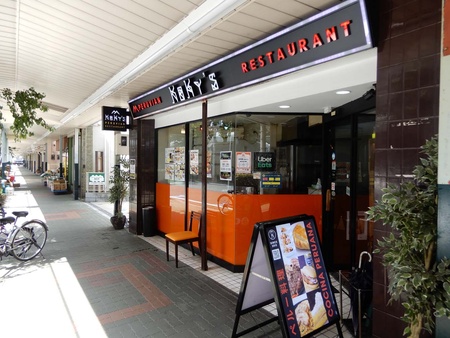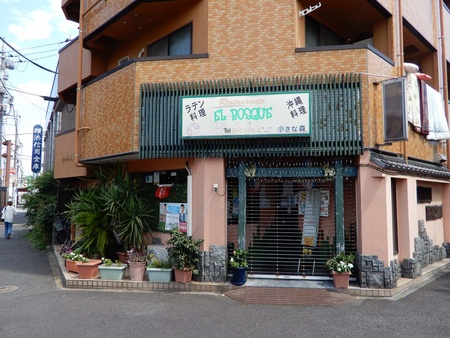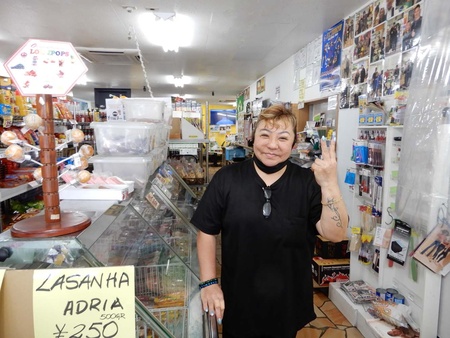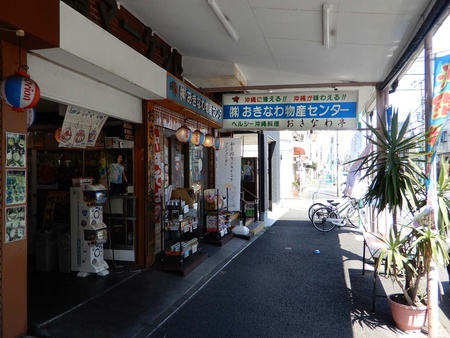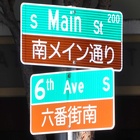Okinawa and South America intersect
Yokohama's Tsurumi Ward, home to a large community of Japanese people with ties to South America, including Brazilians of Okinawan descent, as well as people of Chinese, Filipino, Vietnamese and other foreign nationalities, is dotted with shops exuding the scent of Okinawa and South America. The local government is also promoting a multicultural society where everyone can live comfortably.
Tsurumi Ward faces Tokyo Bay to the south, and is also home to Daikoku Pier, which was developed offshore through reclaimed land. It borders Kawasaki City to the east, and together with the southern part of Kawasaki City, the coastal area forms part of the Keihin Industrial Zone. The Tsurumi River, which opens up on the coast, flows north and south through the ward.
I had heard that in Tsurumi Ward, Okinawan and South American restaurants and grocery stores are dotted from JR Keihin-Tohoku Line Tsurumi Station toward the coast. Based on the story of Michie Yasufuso, the president of the NPO ABC Japan, introduced in this column last time, and the JICA Yokohama Overseas Migration Museum Newsletter (Summer 2021 issue), I decided to walk around these areas starting from Tsurumi Station under the scorching heat of midsummer.
I have gotten off at the west exit of JR Tsurumi Station several times, but this was my first time getting off at the east exit and heading towards the coast. From the west exit, a short walk takes you to the vast grounds of the Soto Zen sect's head temple, Sojiji Temple, and the Tsurumi University School of Dentistry, and further west up the hill is a residential area.
In comparison, the east exit gave the impression of an old-fashioned streetscape lined with shops, but a large rotary stretched between it and Tsurumi Station on the Keihin Kyuko Line, which runs parallel to the JR line, and the surrounding area was surrounded by buildings, giving the impression of a bright, orderly streetscape.
The ABC Japan office is located in one of these buildings, and if you walk from there towards the coast, you will soon come to Tsurumi Bridge, which crosses the Tsurumi River. As I was about to cross the bridge, two bicycles passed in front of me. The riders were women wearing traditional clothing, like a chador, with their heads completely covered.
Peru, Bolivia, Brazil
The sunlight was intense, but the breeze blowing across the river helped to alleviate the heat. After crossing the bridge, I entered a shopping street with a large sign saying "Honcho" written on the side of the street. I was later told that this was Honcho-dori Shopping Street, and that it was originally a place where the daily necessities of people working in the industrial area were concentrated.
However, now the closed shutters are all that catches your eye. If you go left along the straight road with arcades on both sides, you will soon come across a restaurant with a stylish glass exterior. This is PERUVIAN RESTAURANT KOKY'S.
Along with a photo of a whole roasted chicken, there is a sign that says, "Peruvian restaurant where you can enjoy authentic flavors." Although meat dishes seem to be the main focus, they also serve ceviche, a type of marinated seafood, and it seems they offer takeout.
After walking through the arcade street for about 500 meters, turn left and enter Nakadori Shopping Street. Continue on the flat road and you will come to an intersection with Shiokaze Boulevard. On this corner, there is a restaurant with a sign saying "Restaurante EL BOSQUE Latin Cuisine Okinawa Cuisine". Latin and Okinawa. You can imagine the owner's roots, and in fact, the restaurant is run by a husband and wife with roots in Okinawa and Bolivia, and serves Okinawa soba and empanadas, a Bolivian-style pie.
Continuing along Nakadori Shopping Street, you'll come across a lively store with a sign out front saying "Meat House Light Meals Pizza Import Shop." The store's green and yellow colors are reminiscent of the Brazilian flag, and it also has the Japanese flag and the Philippine flag on it. This is YURI SHOP, a store selling food and miscellaneous goods from Brazil and other countries, as well as a restaurant.
Tsurumi is a friendly town
Inside the store, the front part is a shop selling ingredients and foods from Brazil and other South American countries, and the back part is a restaurant. The owner, Yuri Kobashikawa, was there so I spoke to her.
"Tsurumi is a nice town. Everyone is kind to foreigners. I've lived in Gunma and Shizuoka before, but this is the best," says Yuri.
Yuri's grandparents were from Nishihara Town, Okinawa Prefecture, and immigrated to Brazil with their family in 1935 when Yuri's father was still a child. Yuri grew up in São Paulo, and like many other Japanese Brazilians, came to Japan in 1989 to work abroad during the bubble economy. After working as an employee for 10 years and also doing part-time work at a Brazilian-related store in Tsurumi, he opened his own store.
Although he is a Brazilian citizen, he said, "I lived in Brazil for 25 years, but now I've been in Japan for 33 years. I love Japan."
Yuri is a third-generation Japanese. Like ABC Japan's Yasufuso, she has roots in Okinawa and came to Tsurumi, which has a long history of Okinawan communities, bringing Brazilian culture with her and at the same time re-adopting Japanese cultural customs.
Schools are multicultural
Near the Yuri Shop, on the same Nakadori Shopping Arcade, is the Tsurumi Okinawa Prefectural Association building, with the Okinawa Products Center Co., Ltd. located on the first floor. Inside the old-fashioned store, with Orion Beer lanterns hanging in front of the storefront, is a packed store filled with Okinawan ingredients and foods such as Okinawa soba noodles, goat soup, pig's trotters, sata andagi, awamori, and other Okinawan folk crafts, including shisa lions.
Also within the building can be seen signs for "Tingara," a store selling island goods and Okinawa soba noodles, and "Urizun," the public relations office for the Yokohama Tsurumi Okinawa Prefectural Association, reminiscent of a scene from the NHK morning drama "Chimudondon."
After this, I decided to take a detour and cross the Tsurumi River to check out a shop that Yasufuso had recommended, called "Rabipa Pasteu," which specializes in pasteu. Pasteu is a simple dish made of thin puff pastry stuffed with various ingredients such as cheese and meat and deep-fried, and is sold at food stalls in Brazil.
On the way to the store, I passed by Yokohama Municipal Ushioda Junior High School near the Tsurumi River. According to the "News from the Overseas Migration Museum" (Summer 2021 edition), about 30% of the students at the school, more than 100 students, have connections with foreign countries such as South America. The school has set up an "international classroom" for students who cannot keep up with the classes, and provides support such as lessons in the students' native language on a daily basis.
La Viva Pastel is a small shop, but photos of the pastel with various ingredients such as cheese, minced meat, chicken, tomato, olives, etc. are displayed in front of the shop. Bianca, a Brazilian who has lived in Japan for nearly 30 years, runs the shop by herself.
There are other shops related to South America and Okinawa, but I decided to end my walk around Tsurumi here and return to JR Tsurumi Station. Finally, I visited the Tsurumi International Lounge near the station. In Yokohama City, 11 international lounges have been established by the ward as facilities for supporting foreign residents, international exchange, and multicultural coexistence, and are run by civic groups, NPOs, public interest foundations, etc.
We learned that Tsurumi International Lounge, located in the JR East Hotel Mets building adjacent to the station's shopping mall, is working on six projects, including "providing information in eight languages" and "interactions between foreign and Japanese residents," with the aim of creating a "town of multicultural coexistence."
© 2022 Ryusuke Kawai


